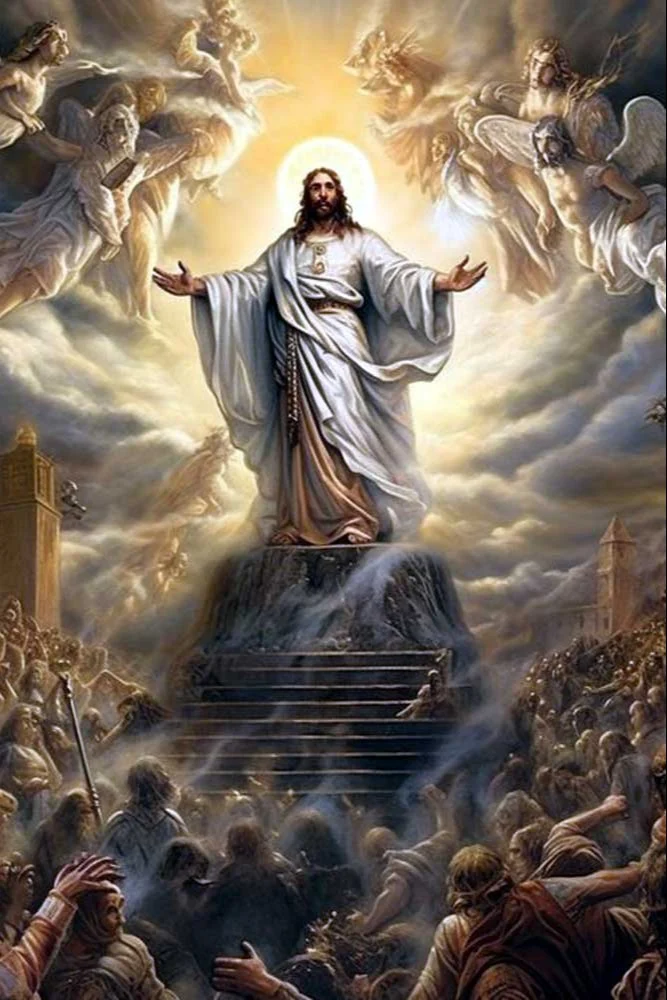The teachings of Jesus have had a profound impact on millions of people around the world.
His words were not just advice on how to live a good life but were filled with deeper meanings that set Him apart from other religious leaders.
Jesus spoke with a unique authority, claiming not only to show the way to God but to be the way Himself.
These five key teachings highlight the distinct messages Jesus delivered, making Him central to the Christian faith.

1. The Command to Love God and Others
One of Jesus’ most important teachings was about love.
When asked what the greatest commandment was, Jesus replied that the most important thing is to love God with all your heart, soul, and mind. He added that loving others is just as important.
This was a radical idea, summarizing all the laws and teachings of the prophets.
By emphasizing love for God and people, Jesus showed that true faith isn’t just about following rules but about having a deep, loving relationship with God and those around us.

2. Jesus as the Gate for the Sheep
Jesus used the metaphor of being the “gate for the sheep” to explain His role in connecting people with God.
He said that He is the only way to enter the kingdom of God, making it clear that salvation comes through Him alone.
This teaching shows that Jesus wasn’t just another teacher; He claimed to be the only path to a full and meaningful life, warning that others who came before Him were like thieves trying to steal and destroy.

3. Unity with the Father
In a bold statement, Jesus declared that He and God the Father are one.
This claim made it clear that Jesus wasn’t just speaking on God’s behalf; He was identifying Himself as God.
This teaching caused a strong reaction among the religious leaders, who accused Him of blasphemy because they understood the seriousness of His claim.
Jesus’ words here are central to the Christian belief in the Trinity, where He is seen as the second person of the Godhead.

4. Authority to Forgive Sins
Jesus demonstrated His divine authority when He forgave the sins of a paralyzed man, a power that only God was believed to have.
By doing this, Jesus wasn’t just healing physical ailments but was addressing the deeper spiritual need for forgiveness.
His actions sparked controversy among the religious leaders, who were outraged by His claim to have the authority that belonged to God alone.
This moment underlined the tension between Jesus and the religious authorities, as He often made statements that challenged their beliefs.

5. The Coming of the Son of Man
Jesus spoke of His future return, describing Himself as the “Son of Man” who would come on the clouds of heaven.
This reference was rooted in Old Testament prophecies and pointed to Jesus’ divine role in the end times.
When asked if He was the Messiah, Jesus affirmed it and linked His identity to these prophecies.
His declaration led to outrage from the high priest, who accused Him of blasphemy, showing that Jesus’ claims were understood as direct assertions of His divine nature.

Conclusion
These teachings reveal that Jesus was not just a moral teacher or a prophet.
He made claims that set Him apart as the Son of God, the only way to salvation, and the fulfillment of ancient prophecies.
The idea that all religions are the same doesn’t hold up when you consider the unique and bold claims Jesus made about Himself.
His teachings form the foundation of the Christian faith, emphasizing the importance of a personal relationship with God, achieved through Him.
Johnny specializes in content related to Jesus, the Bible, and religious topics. With a profound understanding of spirituality, Johnny’s articles are both insightful and inspiring, guiding readers through the complexities of faith.




